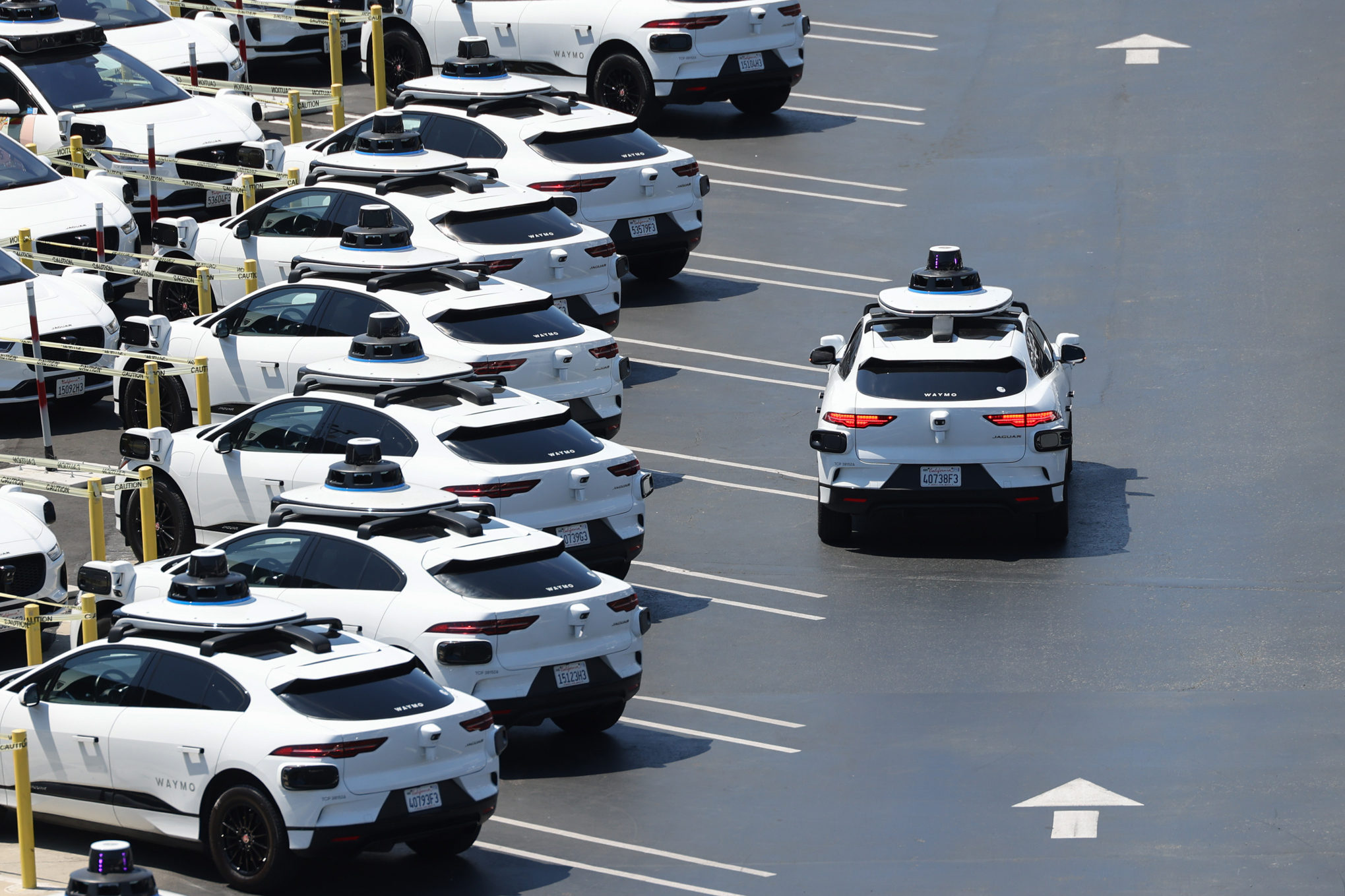Autonomous vehicle companies angling to expand their reach have hit a regulatory snag, with San Francisco officials trying to hit the brakes. So now, companies like Cruise and Waymo are taking the showdown to the court of public opinion, hoping to win hearts with a new PR blitz.
Self-driving cars have been at the center of high-profile blunders, like interfering with first responders during public emergencies or killing a small dog. Further, a Tesla in self-driving mode—a different technology, but one without a human in full control of the vehicle—caused an eight-car crash on the Bay Bridge. In response, San Francisco officials have urged a slower rollout, adding pressure to the commission to further review the impacts of robotaxis before making a decision.
Safer Roads for All, a new campaign sponsored by Waymo and other tech industry interest groups, hit the gas pedal to urge the expansion of autonomous vehicles before the California Public Utilities Commission. In the wake of public safety concerns, the body twice this summer delayed a vote that would allow Waymo and Cruise to charge paying customers and operate 24/7 in cities like San Francisco.
Since the vote was first delayed in June, Waymo and Cruise have done their own urging.
In July, Cruise ran a full-page ad in the New York Times, San Francisco Chronicle, Los Angeles Times and Sacramento Bee, arguing “Humans are terrible drivers.”
We ran this full-page ad in @nytimes and several local papers today.
— Kyle Vogt (@kvogt) July 13, 2023
Human drivers aren't good enough. America can do better, and it is time we fully embrace AVs. pic.twitter.com/bBRhjQQtqC
“Local leaders and regulators need to safely explore every option possible to reverse the horrific status quo on our roads, instead of blocking a critical technology with a strong safety record,” said Cruise spokesperson Hannah Lindow in an email. “The public deserves to know that there’s a promising emerging technology that could help improve road safety.”
Safer Roads for All has also recently called on the public to tell the state utilities commission to approve the expansion while touting the environmental and road safety benefits of the robotaxis.
“We recognize that public education and public information is one of the key challenges with wider public acceptance of AV technology,” Waymo spokesperson Katherine Barna wrote in an email. “As a result, we’ve joined with these other organizations to advocate against bills that seek to ban the safe and responsible testing, expansion, and deployment of AVs.”
Sponsored ads from Safer Roads for All have been more noticeable on X, the social media site formerly known as Twitter, in recent weeks. The campaign has pushed out tweets and videos to show the benefits of autonomous vehicles with the slogan “Don’t let politics block progress.”
“The policymakers in California have put up some hurdles in front of the industry, and that’s something that’s been very frustrating,” said Jeff Farrah, executive director of the Autonomous Vehicle Industry Association, a sponsor of the campaign.
The tech industry has been here before. New platforms and products upending established industries make a splash, policies are proposed, and the industry goes on a spending spree to change public opinion.
It’s known to work. Despite Airbnb fumbling ads against a measure to regulate private short-term listings, San Francisco voters rejected it in 2015. In 2020, armed with roughly $200 million in campaign funds, Uber, Lyft and Doordash helped persuade California voters to approve Proposition 22, which categorized gig workers as independent contractors, not full-time employees.
Safer Roads for All is sponsored by the Autonomous Vehicle Industry Association, NetChoice, Chamber of Progress, TechNet and Waymo. Members can overlap: For example, Lyft is in both TechNet and the vehicle association, while Waymo participates in every group.
Safer Roads for All formed in April to counter Assembly Bill 316, which would require a trained human operator to be present in autonomous vehicles weighing over 10,000 pounds. Backed by the Teamsters, a major labor union that represents drivers, the bill has sailed through the state Legislature but requires a full vote, and Gov. Gavin Newsom has not yet signed it.
NetChoice—an tech industry group that describes itself as making the internet “safe for free enterprise and free expression”—represents the likes of Google, TikTok, Amazon and Meta. It’s highly active, having launched a litigation center in March for the tech industry to come together to make legal arguments and track local policy. In December 2022, NetChoice sued California to stop a law protecting minors online from going into effect, arguing it violated the First Amendment.
Safer Roads for All declined to provide a figure on expected spending for this year. Nationally, top tech firms in 2022 broke their records on lobbying costs, spending nearly $70 million total, according to a Bloomberg tally.
Jason Rabinowitz, president of the regional Teamsters Council 7, said that the organizations behind the new campaign don’t reflect grassroots sentiment, but rather act solely to amplify the prerogatives of Waymo and Google’s parent company, Alphabet.
“The industry is concerned about their profits, and that’s why they’re trying to rush this technology out before it’s ready,” Rabinowitz told The Standard. “They’re trying to convince people otherwise, but people in San Francisco are seeing with their own eyes and own experiences what these robot vehicles are about.”
Further delays or not, a future of autonomous vehicles feels inevitable to many. When San Francisco will have enough buy-in to stop activists from placing cones on the cars to trigger an automatic shutdown is anyone’s guess.
This story has been updated to reflect that the vehicle that caused an eight-car pileup on the Bay Bridge was not a self-driving car but a Tesla in self-driving mode.
